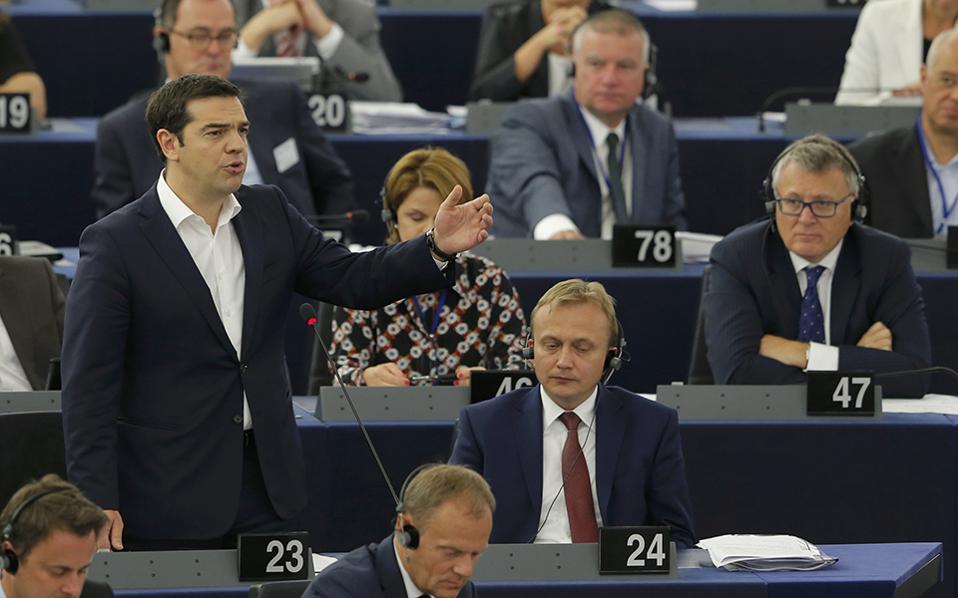Greek PM tells EU parliament will reform for aid

Greek Prime Minister Alexis Tsipras assured the European Parliament on Wednesday that he would deliver sweeping reform proposals this week to secure a bailout funding deal that can keep Greece in the eurozone.
Greeted with cheers to a packed chamber in Strasbourg, from fellow leftists but also from anti-EU members on the far-right, the 40-year-old premier said he was determined to fix years of bad government as well as reverse the increasing inequalities caused by five years of creditor-imposed austerity.
"Let me assure the house that, quite apart from the crisis, we will continue with our reform undertakings," Tsipras said after flying in from Brussels where euro zone leaders handed him a final deadline of Sunday to agree to terms for a new bailout.
"We demand an agreement with our neighbors," he said. "But one which gives us a sign that we are on a long-lasting basis exiting from the crisis, which will demonstrate that there's light at the end of the tunnel … Our prime objective must be to combat unemployment and to encourage entrepreneurship."
He spoke after Donald Tusk, the former Polish prime minister who chairs EU summits, told parliament: "The stark reality is that we have only four days left to find an ultimate agreement. Until now I've avoided talking about deadlines but I have to say it loud and clear that the final deadline ends this week."
Following Tsipras's 12-minute speech, party leaders took the floor in turn in a chamber where some Eurosceptics hailed Tsipras's victory in a referendum by propping up cards reading "OXI" – "No" in Greek – the Greek electorate's response to the terms previously proposed by creditors for a bailout.
Manfred Weber, the German leader of the biggest group, the centre-right EPP, drew a mix of boos and cheers with an attack on the Greek government's failure since its election five months ago to propose reforms. He accused Tsipras of misleading Greek voters, destroying trust in Europe and insulting other leaders.
"To the far-left and the far-right you have a lot of applause," Weber told him. "The extremists of Europe are applauding you."
The centrist leader in parliament, former Belgian prime minister Guy Verhofstadt, won his own applause by urging Tsipras to make good on promises of sweeping away privileges of vested interests that have hobbled the Greek economy.
Tsipras appeared to be jotting notes as Verhofstadt ran through a list that included privatizing banks, liberalizing access to some professions and ending special treatments for shipping magnates, the military and the Orthodox Church.
"The choice you have is very simple. How do you want to be remembered?" Verhofstadt said, noting the vast majority of Greeks wanted to keep the euro. "As an electoral accident who made his people poorer in his country? Or do you want to be remembered, Mr. Tsipras, as a real revolutionary reformer."
Britain's Nigel Farage of the anti-EU UK Independence Party, said, however, that the Greek crisis simply confirmed a terminal split between the economies of northern and southern Europe that made the euro and the European Union unworkable.
"The European project is actually beginning to die," Farage said, addressing Tsipras, who showed no emotion. "Frankly, if you've got the courage, you should lead the Greek people out of the euro zone with your head held high." [Reuters]





